Relay Rod Replacement Saginaw Gear
Removal Procedure
Tools Required
J 24319-B Steering Linkage Puller
- A non-adjustable relay rod connects the pitman arm to the steering arm. If the relay rod becomes worn or damaged, replace the complete assembly.
- Remove the cotter pins (9) at each end of the relay rod.
- Discard the cotter pins (9).
- Remove the relay rod nuts.
- Use theJ 24319-B in order to remove the relay rod.
- Inspect the relay rod (6) for damage.
- Inspect the end assembly (5, 7) stud threads for damage.
- Inspect the end assembly (5, 7) rubber seals for the following conditions:
- Install the relay rod nuts
- Use the J 5853-B in order to measure the torque required to turn the ball stud.
- Replace the relay rod (6) if the turning torque is less than 0.5 N·m (5 lb in).
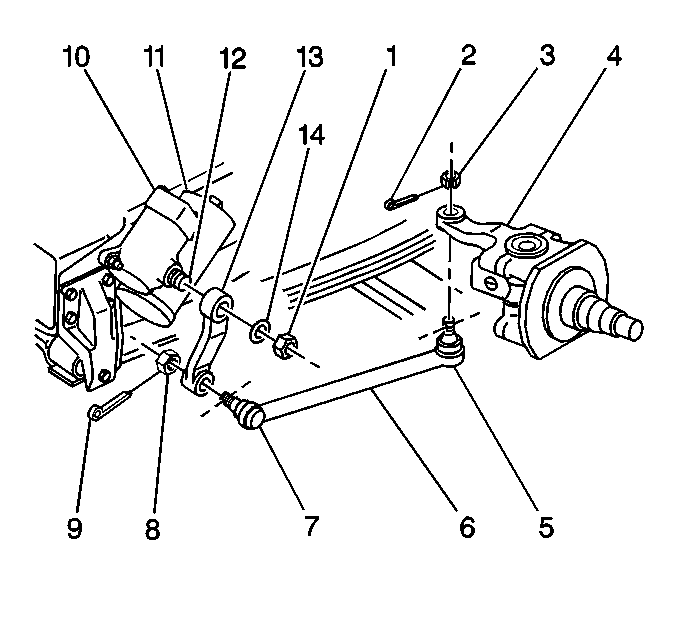
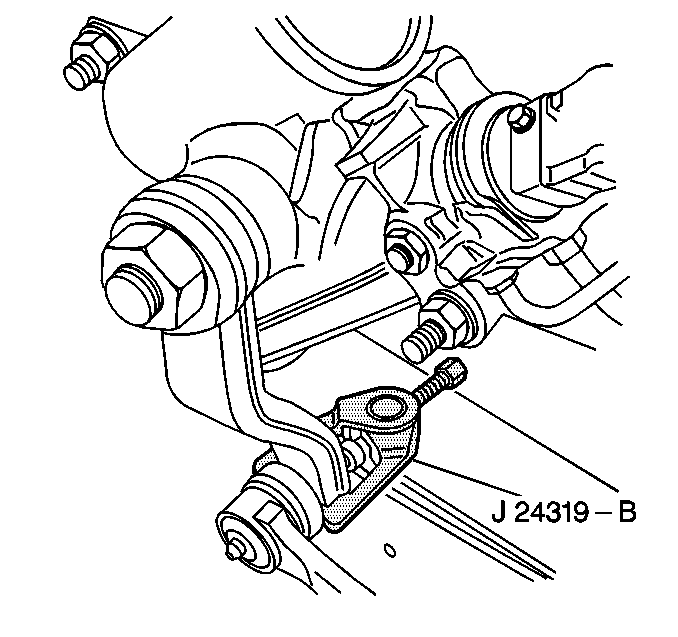

| • | Damage |
| • | Deterioration |
Installation Procedure
- Install the relay rod assembly (12) to the pitman arm (13).
- Install the relay rod nut.
- Install the relay rod end assembly (5) to the steering arm (4).
- Install the relay rod nut.
- Install the new cotter pins (2).
- Lubricate the relay rod with the chassis lubricant. Refer to Fluid and Lubricant Recommendations and Maintenance Schedule in Maintenance and Lubrication.

Notice: Use the correct fastener in the correct location. Replacement fasteners must be the correct part number for that application. Fasteners requiring replacement or fasteners requiring the use of thread locking compound or sealant are identified in the service procedure. Do not use paints, lubricants, or corrosion inhibitors on fasteners or fastener joint surfaces unless specified. These coatings affect fastener torque and joint clamping force and may damage the fastener. Use the correct tightening sequence and specifications when installing fasteners in order to avoid damage to parts and systems.
Important:
• Advance the relay rod nuts to the nearest cotter pin slot. • Do not back off a relay rod nut in order to insert a cotter pin.
Tighten
Tighten the relay rod nut to 130 N·m (95 lb ft).
Relay Rod Replacement TRW Ross Gear
Removal Procedure
A non-adjustable relay rod connects the pitman arm to the steering arm. If the relay rod becomes worn or damaged, replace the complete assembly.
Tools Required
J 26813-B Steering Linkage Puller
- Remove the cotter pins (7, 12) at each end of the relay rod (11) (right hand side).
- Discard the cotter pins (7, 12).
- Remove the cotter pins (8, 13) at each end of the relay rod (10) (left hand side).
- Discard the cotter pins (8, 13).
- Remove the relay rod nuts (9, 12).
- Remove the cotter pins (7, 12) at each end of the relay rod (11) (right hand side).
- Discard the cotter pins (7, 12).
- Remove the relay rod nuts (8, 10) .
- Use theJ 26813-B in order to remove the relay rod from the pitman arm (right or left side).
- Remove the relay rod (10) from the steering arm (7).
- Inspect the relay rod (11) for damage.
- Inspect the relay rod (10) for damage (left hand side)
- Inspect the end assembly stud threads for damage.
- Inspect the assembly rubber seals for the following conditions:
- Install the nuts (9), (12).
- Use a torque wrench in order to measure the torque used to turn the ball stud.
- Replace the relay rod if the turning torque is less than 0.5 N·m (5 lb in).
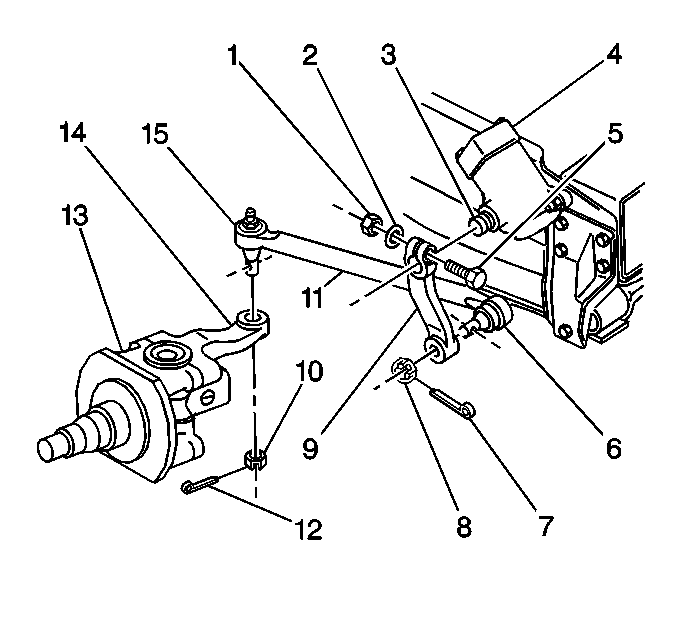
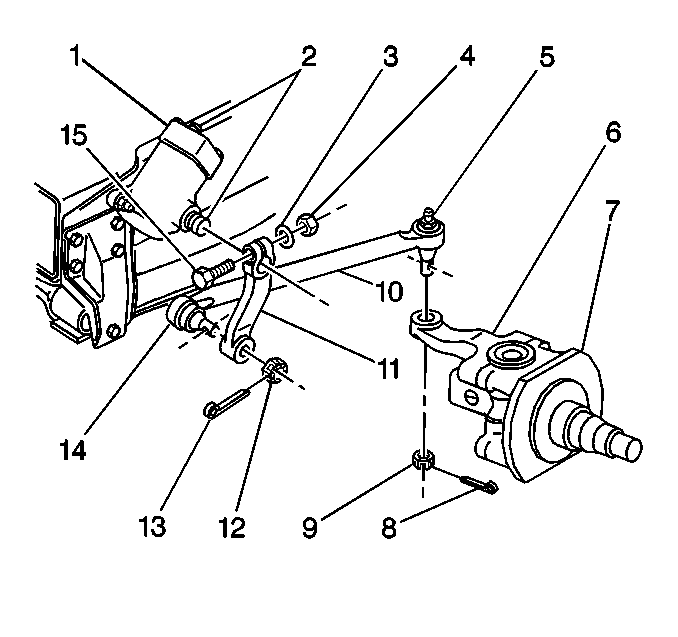

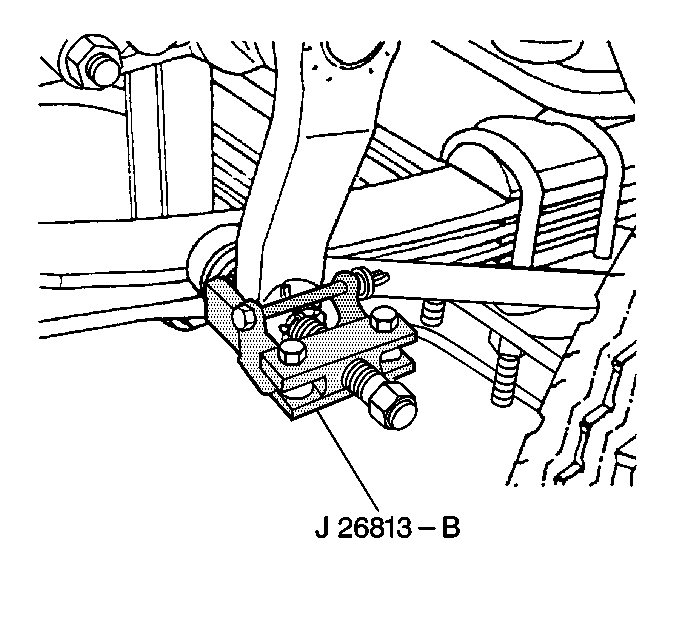



| • | Damage |
| • | Deterioration |
Installation Procedure
- Install the relay rod ball joint-pitman arm end to the pitman arm (9).
- Install the relay rod ball joint-pitman arm end to the pitman arm (left hand side) (11).
- Install the pitman arm/relay rod nut (8).
- Install the pitman arm/relay rod nut (left hand side) (12).
- Install the relay rod ball joint steering arm end to the steering arm (14).
- Install the relay rod ball joint steering arm end to the steering arm (left hand side) (6).
- Install the relay rod ball joint nut (10).
- Install the relay rod ball joint nut (left hand side) (9).
- Install the new cotter pins (7).
- Install the new cotter pins (left hand side) (13).
- Lubricate the relay rod with chassis lubricant. Refer to Fluid and Lubricant Recommendations and Maintenance Schedule .







Notice: Use the correct fastener in the correct location. Replacement fasteners must be the correct part number for that application. Fasteners requiring replacement or fasteners requiring the use of thread locking compound or sealant are identified in the service procedure. Do not use paints, lubricants, or corrosion inhibitors on fasteners or fastener joint surfaces unless specified. These coatings affect fastener torque and joint clamping force and may damage the fastener. Use the correct tightening sequence and specifications when installing fasteners in order to avoid damage to parts and systems.
Tighten
Tighten the relay rod nut to 160 N·m (120 lb ft).
| • | Advance the relay rod nut to the nearest cotter pin slot. |
| • | Do not back off a relay rod nut in order to insert a cotter pin. |

Tighten
Tighten the relay rod nut to 160 N·m (120 lb ft).
| • | Advance the relay rod nut to the nearest cotter pin slot. |
| • | Do not back off a relay rod nut in order to insert a cotter pin. |


